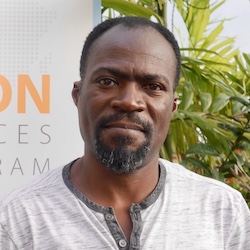Bio
Job Allan Wefwafwa is a PhD candidate at University of The Witwatersrand, South Africa; with a topic titled “Kenyan TV News as Africanised Public Sphere: The Representation of “Voice” Participation in African Democracy”. He holds a Bachelor’s degree in mass communication from Makerere University Kampala Uganda and a Master of Arts Degree in communication studies from the University of Nairobi. Wefwafwa is a Tutorial Fellow at the Department of Journalism & Media Studies, Technical University of Kenya. He has a bias towards broadcast journalism which he has practiced and taught for over seven years. His interest is in indigenous African politics and culture. A majority of his peer-reviewed publications in communication are about harnessing neglected indigenous knowledge into solving people’s problems. He also enjoys writing about contemporary Kenyan politics. His hobbies include reading about Greek Mythology, travelling, and going on nature walks. If Wefwafwa was not a university lecturer, he would be a philanthropist. His dream achievement is to set up a foundation to run an orphanage as a way of giving back to society.

